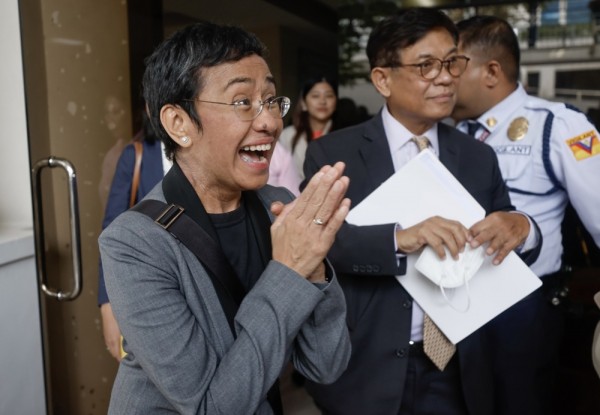Harassment and murders of journalists, criminal defamation laws and the lack of access to information legislation are the greatest problems currently affecting Philippines journalists. In spite of a relatively favorable attitude towards press freedom and freedom of information on the part of the administration of President Benigno Aquino III, the government has so far failed to implement the necessary political reforms that would lead to substantial improvement in the country’s press freedom situation.
These were the finding of the IPI Press freedom mission to Manila from 20-23 September 2011 during which delegates met with high level representatives of the Philippines government as well as with media and civil society groups. A report released today by IPI reveals the results of discussions with Philippine journalists and media experts, and their efforts to create a system in which journalists are free to report without fear of retaliation. The report also illustrates ongoing efforts by a government that has raised great expectations for reforms, yet appears unable to fulfill them.
“We are alarmed at continuing impunity in the killing of journalists,” said IPI Press Freedom Manager, and mission participant, Anthony Mills. “President Aquino must translate words into action. Pledges to uphold press freedom must result in convictions for those who kill journalists. The unsolved killings are an ugly stain on an otherwise positive press freedom environment.”
Philippine journalists told IPI that President Aquino had pledged to reverse the nation’s record of unpunished violence against journalists, but that a number of issues were rendering the task difficult. These included: incompetence and corruption on the part of investigators; threats and bribes targeting witnesses; a weak justice system; negligence on the part of government officials investigating and prosecuting such crimes; and the delay of trials through legal maneuvers.
The IPI report also presents a commitment by Assistant Secretary for Justice Geronimo Sy to finalising an ongoing review of the country’s criminal code. Stressing the urgency of this review process, IPI highlighted the importance of reviewing the rules of court that currently allow for endless court proceedings with no convictions. Furthermore, articles that criminalise defamation need to be scrapped if Philippines law is to be in line with international standards.
Concerns related to the government’s failure to pass a much-awaited Freedom of Information bill are also discussed in the report. Presidential Secretary and Spokesman Edwin Lacierda told IPI that the current draft of the bill had been criticised by broad sectors of civil society as it did not provide sufficient guarantees for accessing information of public interest.
Finally, the IPI report looks at development in the prosecution of the perpetrators of the Maguindanao massacre, when, on 23 November 2009, 32 journalists were slaughtered in the Philippine province of Maguindanao, alongside another 26 people accompanying a mayoral candidate in a convoy. Secretary Lacierda told the IPI delegates that President Aquino viewed the case as a “litmus test for the Philippine government.” Nevertheless progresses has been slow.
Participants in the mission included: IPI Deputy Chairperson Galina Sidorova, chairperson, Foundation for Investigative Journalists – Foundation 19/29, Russia; IPI Board Member Markus Spillmann, editor-in-chief, Neue Zürcher Zeitung, Switzerland; Alison Bethel McKenzie, executive director, International Press Institute (IPI); Anthony Mills, press freedom and communications manager, International Press Institute (IPI); Barbara Trionfi, senior press freedom adviser, Asia and the Pacific Region, International Press Institute (IPI).
The IPI report and the recommendations included in it will serve as a basis for IPI’s advocacy efforts in the Philippines in the coming months.


